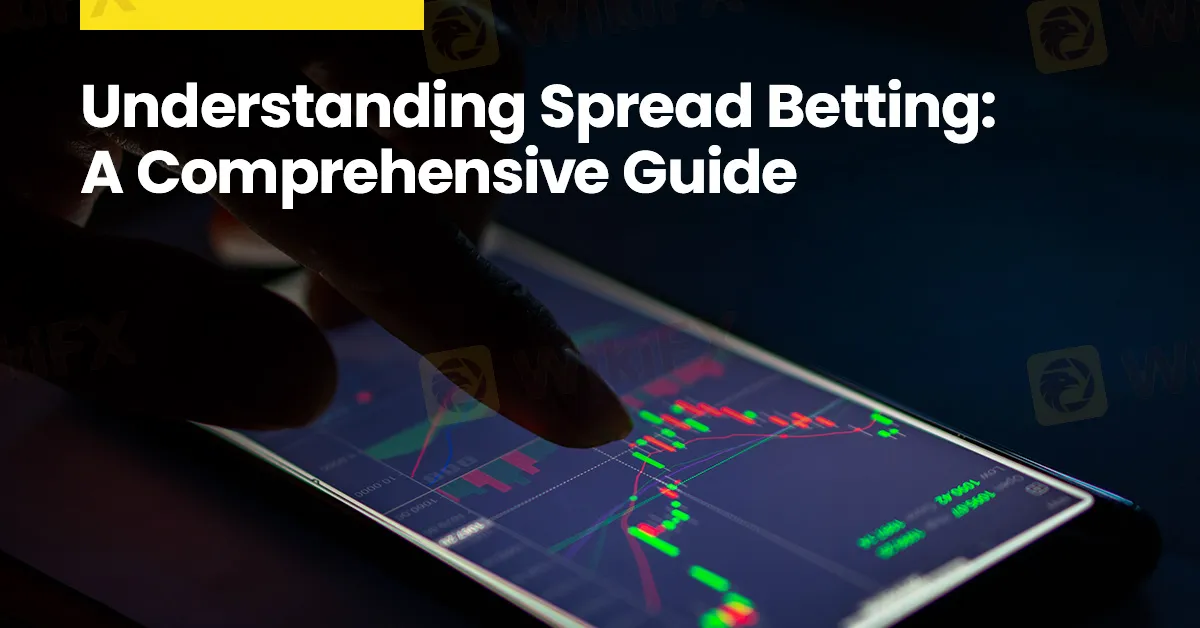简体中文
繁體中文
English
Pусский
日本語
ภาษาไทย
Tiếng Việt
Bahasa Indonesia
Español
हिन्दी
Filippiiniläinen
Français
Deutsch
Português
Türkçe
한국어
العربية
Understanding Spread Betting: A Comprehensive Guide
Abstract:Offering flexibility and potential for profit in both rising and falling markets, spread betting has emerged as a favoured choice among traders seeking leveraged opportunities. So, what exactly is spread betting, and how does it work?

In the dynamic world of financial trading, various strategies and instruments cater to different risk appetites and investment goals. One such method gaining popularity, particularly in the realm of forex and cryptocurrency trading, is spread betting. Offering flexibility and potential for profit in both rising and falling markets, spread betting has emerged as a favoured choice among traders seeking leveraged opportunities. So, what exactly is spread betting, and how does it work?
At its core, spread betting is a form of derivative trading where participants speculate on the price movements of various financial instruments without actually owning the underlying asset. Instead of purchasing the asset outright, traders place bets on whether the price will rise or fall within a specified time frame. The profit or loss is determined by the accuracy of the prediction and the size of the stake.
One of the key features of spread betting is the spread itself. This refers to the difference between the buying (ask) and selling (bid) price of an asset. Unlike traditional trading methods where commissions or fees are charged, spread betting incorporates the spread as the primary cost of trading. Traders aim to profit by correctly predicting price movements that exceed this spread.
For instance, if a trader believes that the price of a currency pair like EUR/USD will increase, they would place a “long” spread bet. Conversely, if they anticipate a decrease in price, they would place a “short” spread bet. The potential profit or loss is determined by how much the price moves in the chosen direction.

Spread betting also offers leverage, allowing traders to control a larger position size with a relatively small amount of capital. While leverage can amplify profits, it also magnifies losses, making risk management crucial. Traders must be mindful of the potential for significant losses, especially when using high leverage.
Furthermore, spread betting provides flexibility in terms of trading various markets, including forex, indices, commodities, and cryptocurrencies. This versatility enables traders to diversify their portfolios and capitalize on opportunities across different asset classes.
Regulation and tax implications are essential considerations for spread bettors. Regulations vary by jurisdiction, with some regions imposing restrictions or requiring licensing for providers. Additionally, tax treatment differs between countries, with spread betting often considered tax-free in certain jurisdictions, subject to specific criteria.
Despite its appeal, spread betting carries inherent risks and complexities that may not be suitable for all traders. Market volatility, leverage, and the potential for significant losses underscore the importance of thorough research, disciplined risk management, and a sound trading strategy.
In conclusion, spread betting offers a flexible and leveraged approach to trading financial markets, allowing participants to profit from both upward and downward price movements without owning the underlying asset. By understanding the mechanics, risks, and regulatory considerations associated with spread betting, traders can make informed decisions and navigate the markets with confidence. As with any form of trading, diligence, and prudent risk management are essential for success in spread betting.

Disclaimer:
The views in this article only represent the author's personal views, and do not constitute investment advice on this platform. This platform does not guarantee the accuracy, completeness and timeliness of the information in the article, and will not be liable for any loss caused by the use of or reliance on the information in the article.
Read more

Top 4 Alarming Signs When Trading Through London Capital Group
Planning to invest in London Capital Group? Take a pause, read this exposure story, and then make a decision whether it's worth your investment.

Know These 5 Truths- Before You Choose Blackwell Global
You will find many articles appreciating Blackwell Global, but only a few talk about the red flags of the broker. In this article, we will expose the broker and discuss the harsh truths about Blackwell Global. Keep reading.

5 Reasons to Know Why INFINOX Is a Standout Broker?
Every trader wants to invest their hard-earned money with a broker that offers them benefits and makes their forex journey smooth. Here is a broker you can consider to make your forex trading experience easier. Check out this article to learn how INFINOX stands out in the field of forex brokers

Real Risk Factors with Admiral Markets ! Explained
Many people like Admiral Markets for various reasons, but they often ignore its red flags. Before investing with any broker, it's important to understand the risks involved. If you're not careful, you could fall victim to a scam. Be Scam Alert and make sure you know the risks before choosing Admiral Markets.
WikiFX Broker
Latest News
What WikiFX Found When It Looked Into Emar Markets
MT4 vs MT5 Which Forex Trading Platform Fits Your Needs in 2025?
Short or Long Term: Which to Choose for Double-Digit Returns from Gold Investments?
Gold Soars Above $3,350 as XAU/USD Rallies on Trade Tensions
What is Forex Trading Simulator?
Switzerland tourism boosted as women's soccer continues record-breaking rise
Alchemy Markets: A Closer Look at Its Licenses
Wondering Why Your International Earnings Come Less Than Expected? It's Because of Forex Markup Fees
FCA to modernise rules to unlock investment
How Fake News Sites Are Fueling a Global Investment Scam Epidemic
Currency Calculator


